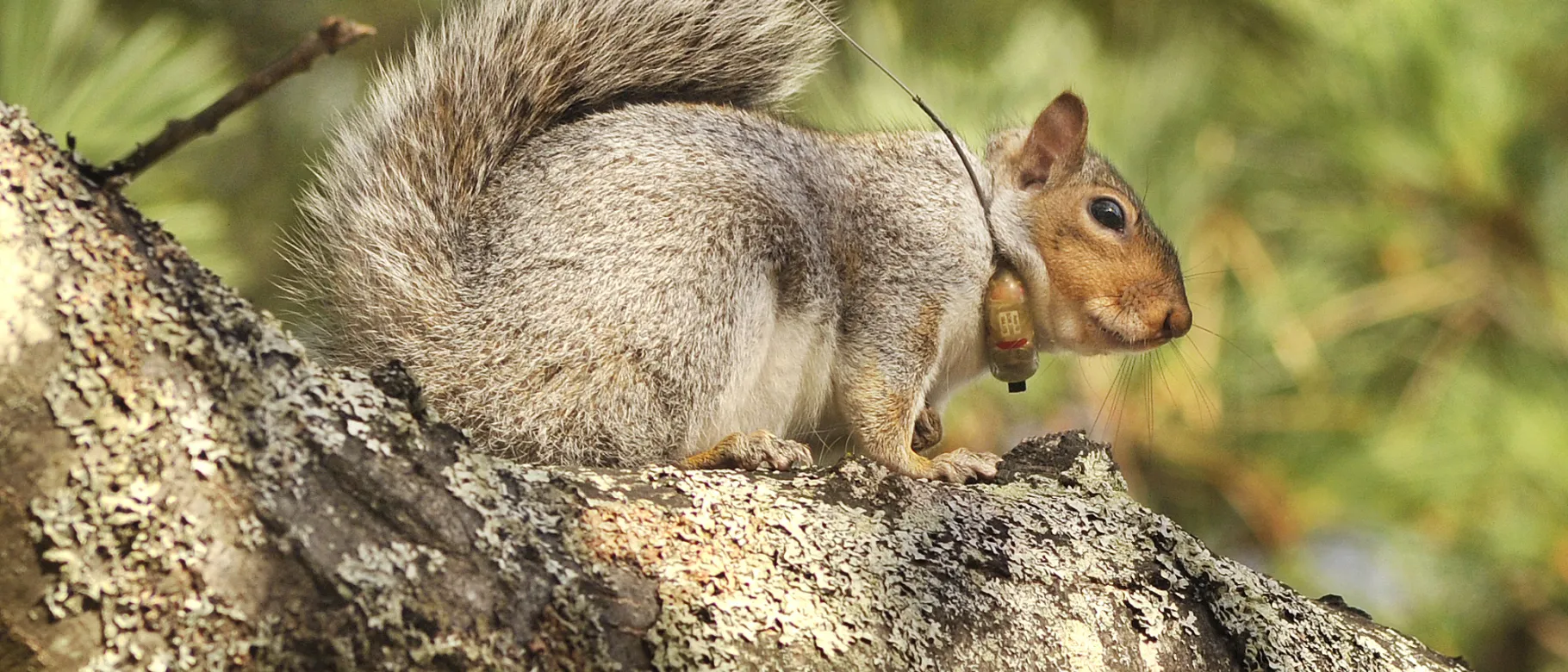UNE’s environmental studies professor Noah Perlut lends expertise for video on squirrel behavior

Noah Perlut, Ph.D., associate professor in the Department of Environmental Studies, was a guest on a recent episode of “Nature Moments,” a weekly series of brief videos produced in partnership by the Audubon Society and Bowdoin Professor Nat Wheelwright, Ph.D.
Perlut, a squirrel expert, joined Wheelwright for a video titled “Outsmarting Squirrels,” which explored some of the reasons why gray squirrels, with brains the size of ping pong balls, continuously beat humans in their quest to squirrel-proof their bird feeders.
According to the video, a squirrel’s keen memory combines with its climbing and chewing abilities as well as its dexterity to render it highly capable of getting into places that humans take great pains to prevent them from accessing. But squirrels’ social skills are also crucial to their ability to outsmart humans. “They are such social animals, and they spend so much time watching their world,” said Perlut. Observant, experimental and persistent by nature, gray squirrels are well suited to work around obstacles meant to keep them from getting to bird seed.
“They are hard to beat in some ways,” said Perlut, “but isn’t that the admirable quality that makes them so wonderful to interact with in your yard?”
To learn more about the College of Arts and Sciences, visit www.une.edu/cas
To apply, visit www.une.edu/admissions
